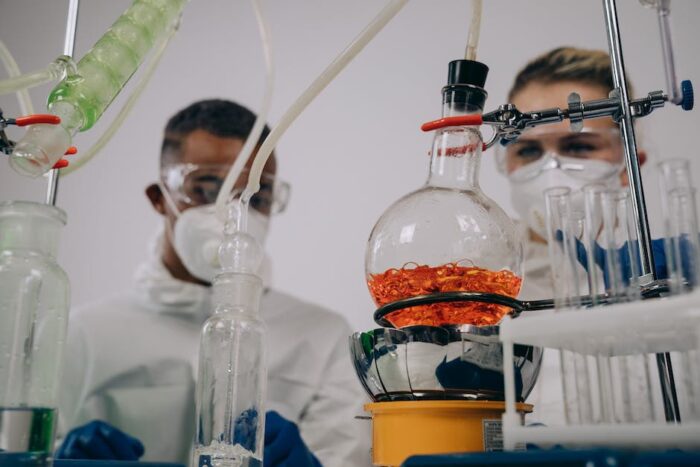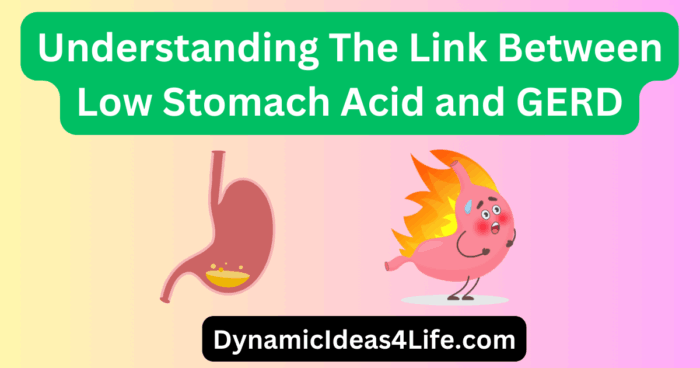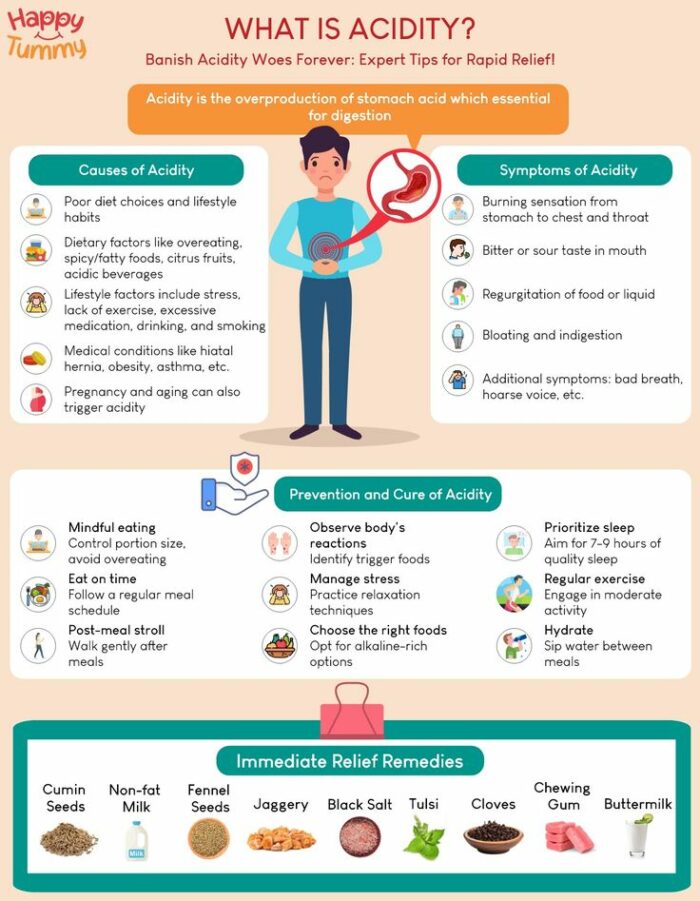Heartburn and Low Stomach Acid (.aka Hypochlorhydria) are NOT two conditions that a good number of people will think are connected. Indeed, as what many will believe is that – when someone experiences Heartburn it is caused by Too Much Stomach Acid (Hypochlorhydria) but here is the catch – the truth may actually surprise these same people, as too much Stomach Acid is actually quite often NOT the real cause.
In today’s post, we shall uncover why this is? and how in fact – the lesser-known condition of Hypochlorhydria (Low Stomach Acid) is the real elephant in the room here. We shall probe into the very essence of this condition, shedding light on what it is, its causative factors and the symptoms it can manifest.
And of course we shall delve into this misdiagnosis. Where by linking both conditions, we can demonstrate what is really happening to help to provide a comprehensive understanding of the interconnectedness of both Low Stomach Acid and Heartburn is. Here Is What They Are Not Telling You – Now let’s begin!
Understanding Heartburn and Low Stomach Acid

Heartburn is a common condition experienced by many people, characterised by a burning sensation in the chest area, typically arising after eating. It may also rise up towards the throat, and It often occurs when stomach acid escapes up into the oesophagus, the tube connecting your throat to your stomach.
This acid reflux can cause an uncomfortable burning sensation or even pain.
It is something that surely many of us will be familiar with on the odd occasion. Yet, however, if we have persistent or severe heartburn this may indicate a medical condition known as gastroesophageal reflux disease (GERD) – A Chronic form of Acid Reflux that is often believed to be because of excessive stomach acid.
But, here is the thing – low stomach acid is likely the true cause in a lot of cases of GERD as stomach acid actually signals the LES (Lower Esophageal Sphincter) to open and close (amongst other things). In instances when this valve doesn’t close this can in fact cause Heartburn just from the small amount of acid that is there splashing up into the Oesophagus and even up in the throat which causes us to cough.
So, that is really it – heartburn may make us feel like our pH balance of Stomach Acid is too high but there are many things that make our stomach more alkaline than acid and it is important to be considerate of what actually could be going on despite what we may think. So,…
The General Causes of Heartburn
The occurrence of Heartburn is often linked to certain lifestyle factors and eating habits.
Highly acidic or spicy foods, alcohol, caffeine, and overeating are common culprits for triggering heartburn. Although, what makes stomach acid too high or too low in the grand scheme is its pH balance.
It can also occur as a side effect of certain medications or as a result of being overweight.
However, an often-overlooked cause of heartburn is exactly what i am writing this article about – Low Stomach Acid, or Hypochlorhydria.
The Link Between Low Stomach Acid and Heartburn
Although it may appear counterintuitive, Low Stomach Acid can actually be a significant trigger for heartburn. The stomach’s primary function is digestion, which is facilitated by the production and presence of stomach acid (HCL). This acid helps to break down food particles and absorb vital nutrients.
In cases of Low Stomach Acid, food is not effectively broken down, which can slow down digestion, leading to food staying in the stomach longer than normal. This can cause the lower oesophageal sphincter (LES) – the muscular ring at the bottom of the oesophagus – to open intermittently, allowing acid to splash back up into the oesophagus, leading to the familiar sense of heartburn.
Understanding and Managing Low Acid-Induced Heartburn
While Heartburn can often be managed through lifestyle changes such as diet regulation, it is vital to address the possibility of Hypochlorhydria if you experience chronic or persistent bouts of Heartburn. A healthcare provider may recommend methods to boost stomach acid levels naturally, such as incorporating certain foods into your diet, or may suggest supplemental hydrochloric acid.
It’s important to consult with a healthcare provider for an accurate diagnosis and treatment plan.
Implications of Heartburn and Hypochlorhydria on Health
Both occasional Heartburn and chronic conditions like GERD can have significant impacts on a person’s quality of life, causing discomfort and potentially contributing to other health conditions such as ulcers, inflammation, malabsorption of nutrients, and throat problems.
Similarly, Hypochlorhydria (high stomach acid) can also lead to digestive concerns, nutritional deficiencies, and an increased risk of bacterial infections.
The Common Occurrence of Heartburn
An estimated third of the population experiences heartburn at least once a month, affecting individuals across all age groups, although the prevalence can increase as we grow older. As such, it’s crucial to further investigate and understand possible causes of this discomfort, like the potential correlation with low stomach acid.
This endeavour is vital for the development of suitable and efficient treatment plans.

Exploring Low Stomach Acid (Hypochlorhydria)
Hypochlorhydria, more widely known as low stomach acid, is a medical condition where the stomach produces insufficient hydrochloric acid (hcl). This acid plays a significant role in the digestion of food, absorption of nutrients, and as a defence against infections.
Ordinarily produced by the cells lining the stomach (Parietal Cells) HCL production is most commonly triggered upon the consumption of food and drink. It is produced in response to whatever we consume and of course this can work in both positive and negative ways.
Further Causes of Low Stomach Acid
Various factors are thought to cause Low Stomach Acid. These include ageing, stress, prolonged use of antacids, certain medications, and H. pylori bacterial infections that affect the stomach lining.
Certain underlying conditions such as autoimmune disorders and gastritis can also contribute to decreased HCL levels within the stomach.
Symptoms and Misdiagnosis of Low Stomach Acid
Low Stomach Acid often gets misdiagnosed due to its symptoms resembling other digestive disorders. Typical indications include bloating, heartburn, flatulence, nausea, and constipation.
Ironically, these symptoms mirror those of excessive stomach acid, often leading to incorrect diagnoses and treatments.
Additional signs such as Iron-Deficiency Anaemia and fatigue can also indicate Hypochlorhydria.
Low Stomach Acid and Heartburn: A Surprising Link
Given that the symptoms are almost identical, paradoxically, both Low and High Stomach Acid can cause Heartburn but through different mechanisms.
Many understand Heartburn to be a direct result of excessive stomach acid. However, really Heartburn can also occur due to Low Stomach Acid. The insufficiency of acid (low pH) in the stomach hinders proper digestion of food. This undigested food starts to ferment, which in turn produces gas.
This excess gas increases intra-abdominal pressure, causing the oesophageal sphincter to open and push stomach content, including the little acid present, back into the oesophagus. As the oesophagus lacks the protective lining of the stomach, it is sensitive to even small amounts of acid.
Thus, even Low Levels of Acid can cause a burning sensation, often mistaken as heartburn caused by high stomach acid.
Furthermore, consistent Low Acid Levels allow bacteria that would be normally eliminated by a healthy acid level to thrive in the stomach and the small intestines, leading to a condition called small intestinal bacterial overgrowth (SIBO).
SIBO, in turn, increases the intra-abdominal pressure leading to more occurrences of acid reflux and heartburn.
The Role of Digestion In Stomach Acid Reflux
Another cause of heartburn in cases of Hypochlorhydria could be the consumption of certain foods, particularly those that are hard to digest or create gas during the digestive process, which allows the sphincter to open.
Therefore, it’s crucial to be correctly diagnosed to prevent ineffective treatments such as antacids if you have low stomach acid, as these could exacerbate the heartburn instead of relieving it.
When dealing with the symptoms and underlying issues of Low Stomach Acid, incorporating dietary changes can prove significantly beneficial. By adopting mindful eating habits, managing stress effectively, and seeking out personalised treatment under the guidance of a healthcare professional, one can effectively reduce symptoms and treat the condition.
Connecting Low Stomach Acid to Heartburn
Understanding the Connection Between Heartburn and Low Stomach Acid
Heartburn, characterised by discomfort caused by Regurgitation of Stomach Acid into the oesophagus, leads to a burning sensation most often associated with high levels of stomach acid. However, emerging research suggests that Low Stomach Acid can also be a contributing factor to the development of heartburn.
Insufficient stomach acid, a condition known as Hypochlorhydria, arises when the production of stomach acid is less than optimal. Predominantly, the stomach secretes hydrochloric acid which is pivotal in breaking down food during digestion.
Reduced levels of this vital acid can lead to malabsorption, other digestive issues and, in some cases, even heartburn.
Mechanism of Low Stomach Acid and Heartburn Connection
So, how exactly does low stomach acid lead to heartburn? The prevalent belief is that stomach acid backs up into the oesophagus when there’s too much of it.
However, with Low Stomach Acid, the mechanism is slightly different.
Stomach Acid plays a crucial role in the efficient digestion of food, particularly in protein break down. It also activates the enzyme pepsin, responsible for protein digestion. When stomach acid is inadequate, food remains in the stomach longer than necessary because it can’t be properly broken down.
This delay in gastric emptying can cause food to put pressure on the lower oesophageal sphincter (LES), a muscle ring that prevents stomach contents from moving back into the oesophagus.
Suppose the pressure on the LES is significant enough. In that case, it can cause the sphincter to open, allowing partly digested food mixed with stomach acid and other digestive enzymes to move back up into the oesophagus, causing heartburn.
Scientific Research Related To Hypochlorhydria
A variety of scientific research and studies have been conducted to explore the connection between Low Stomach Acid and Heartburn. For instance, a study published in the American Journal of Gastroenterology found that nearly half of the participants who exhibited symptoms of heartburn had hypochlorhydria. (R)
Another study published in the Journal of Clinical Gastroenterology noted that low stomach acid might be a risk factor for gastroesophageal reflux disease (GERD), further solidifying the link between low stomach acid and heartburn. The study concluded that people with low stomach acid levels could have an increased risk of GERD, leading to persistent heartburn.
Implications and Treatment
The implication of this link further compels a more holistic approach towards diagnosing and treating heartburn. Often, heartburn treatment involves reducing stomach acid through drugs like proton pump inhibitors (PPIs). But if low stomach acid is the problem, such therapy might not be effective and could exacerbate the condition.
Appropriate diagnosis would involve tests to determine the stomach’s acid levels. If low stomach acid is identified as the issue, treatment might involve dietary changes, supplements to boost acid levels, or therapies aimed at improving overall digestive function.
These findings serve as a vital reminder of the complexity of our digestive system and the importance of adopting a nuanced and personalised approach in treating conditions like heartburn.
In Conclusion
After having traversed through the nuanced complexities surrounding Heartburn and Low Stomach Acid, we presently stand better informed. We can now appreciate the correlation between Low Stomach Acid and Heartburn, going against traditional notions of understanding Heartburn.
Crucially, the scientific research and studies shared highlight this connection, casting a spotlight on the potential need for a pivot in addressing this condition.
As we draw to a close, it is our hope that this new understanding of Low Stomach Acid and its implication on heartburn aids us in fostering improved wellness. With the evolution of medical and health research, it becomes increasingly vital to revisit and reconsider our existing perspectives.
While heartburn continues to be a widely experienced condition, our understanding of its relationship with stomach acid evolves, promising an enhanced approach towards its diagnosis and management in the future.
We shall finish up this discussion here but if you would like to read more check out Our Page HERE<<




Anxiety and Depression best ways to lower blood sugar BiOptimizers blood pressure supplements blood sugar support supplements Digestive Enzymes Supplement digital products Dr Sam Robbins Erectile dysfunction Exercise Gut Health Healthy Living heart health HFL how to lower blood sugar levels How To Lower Cholesterol insulin resistance joint health supplement Keto keto dieting Keto Diet Weight Loss leaky gut supplements leptin resistance list Magnesium deficiency Matt Gallant mental health multivitamins Nootropics nutrient supplements Probiotics Probiotic Supplements proteolytic enzymes reverse type 2 diabetes stress and anxiety stress relief vitabalance vitapost Wade Lightheart weight loss articles weight loss diet plans weight loss product reviews weight loss supplements weight loss supplements that work weight loss tea


Your dedication to your niche is evident.
Thank you
Your site loads up incredibly fast, and the content is top-notch. You’ve done a fantastic job, and I appreciate your efforts.
Thank you.
Your blog is a testament to your passion for your subject matter. Your enthusiasm is infectious, and it’s clear that you put your heart and soul into every post. Keep up the fantastic work!
Your writing is a true testament to your expertise and dedication to your craft. I’m continually impressed by the depth of your knowledge and the clarity of your explanations. Keep up the phenomenal work!
Thanks for the sharing